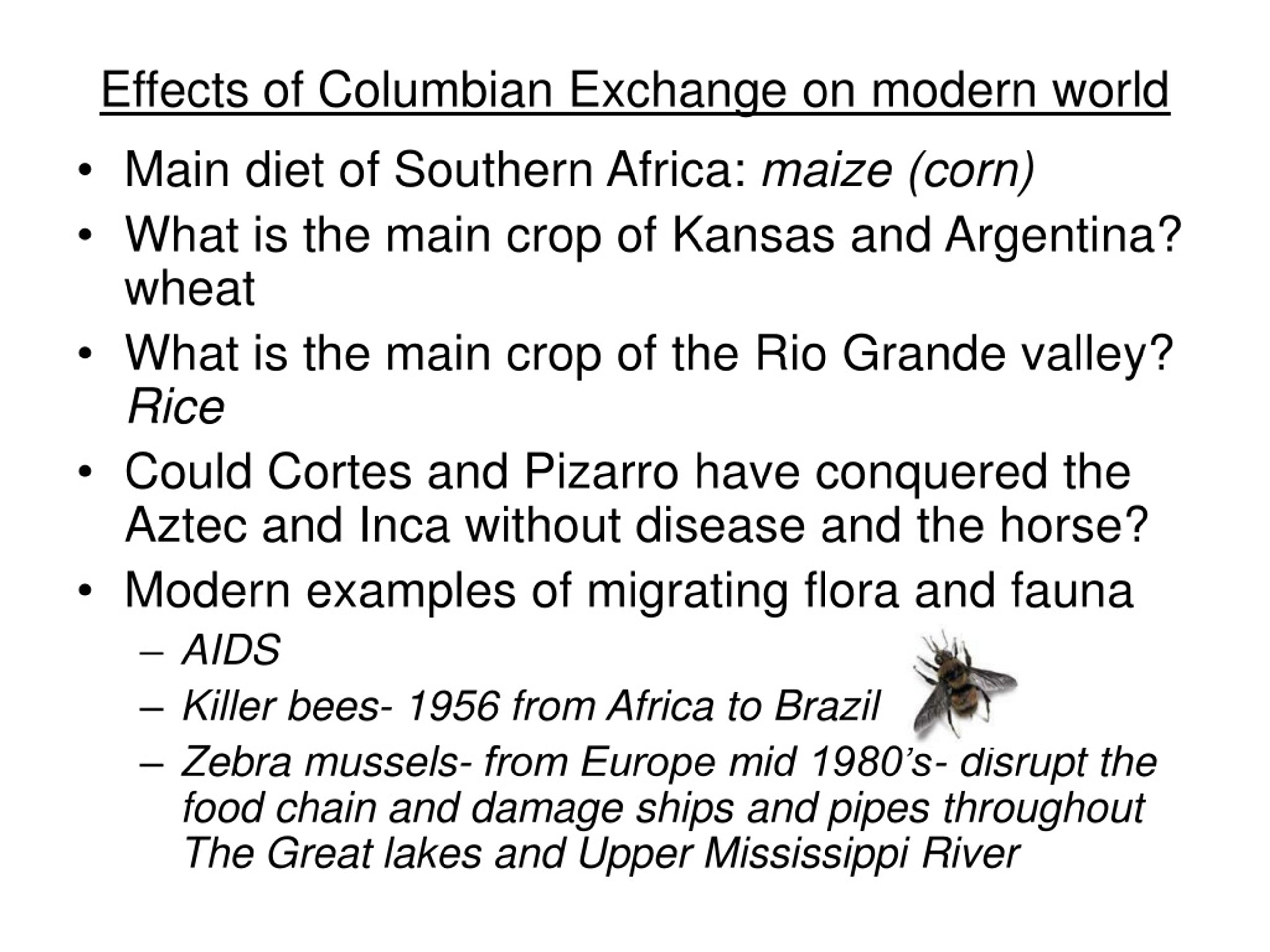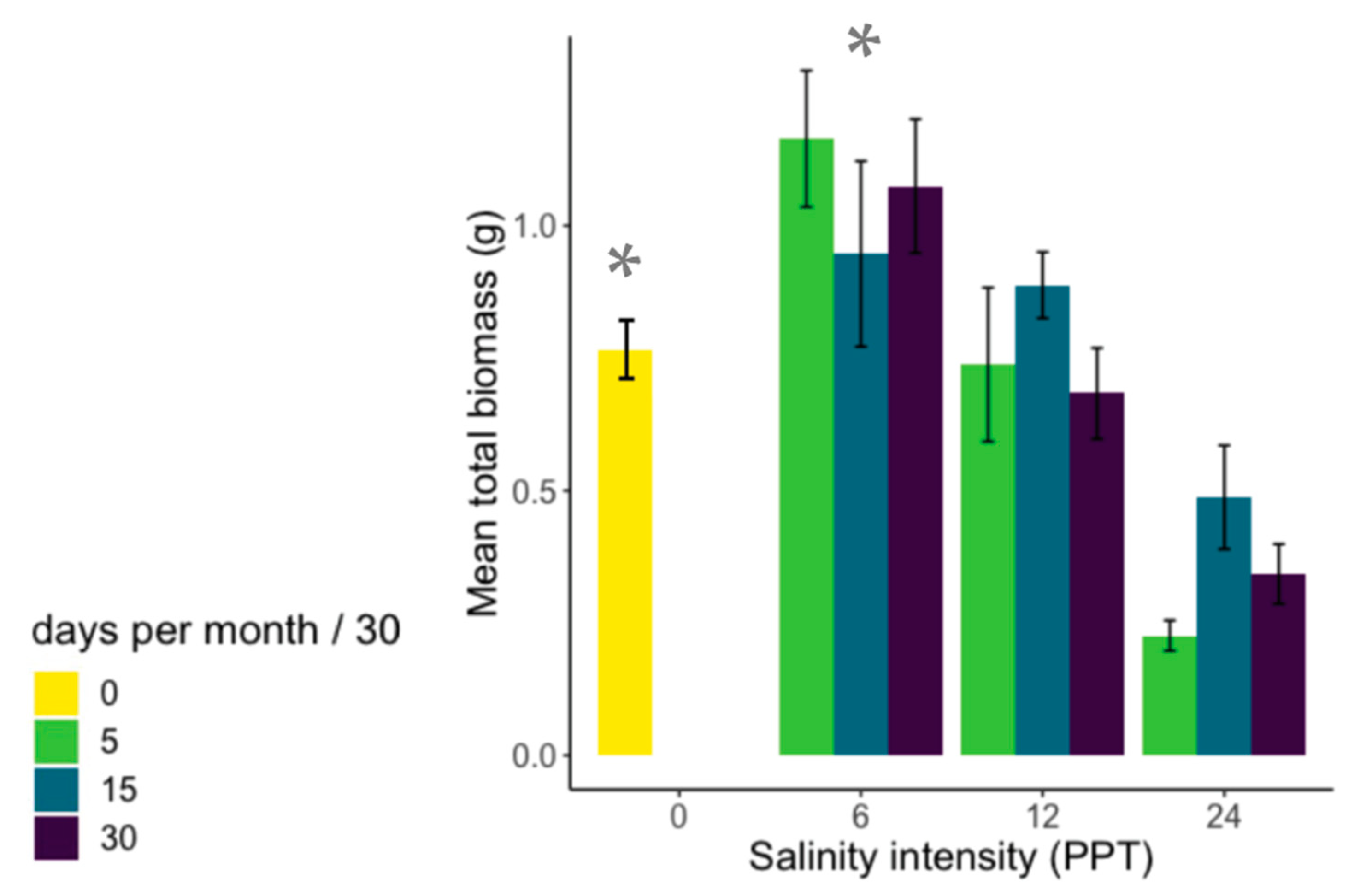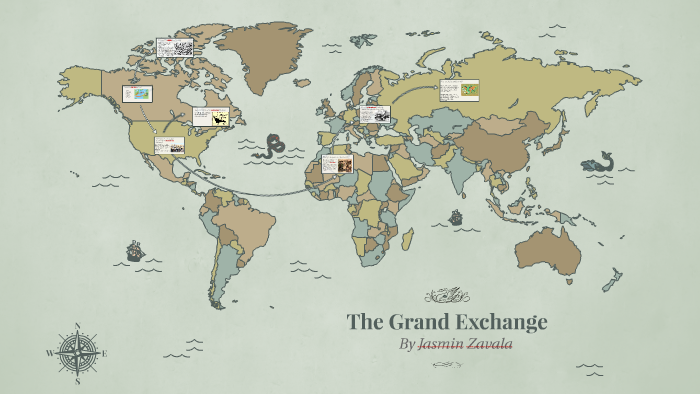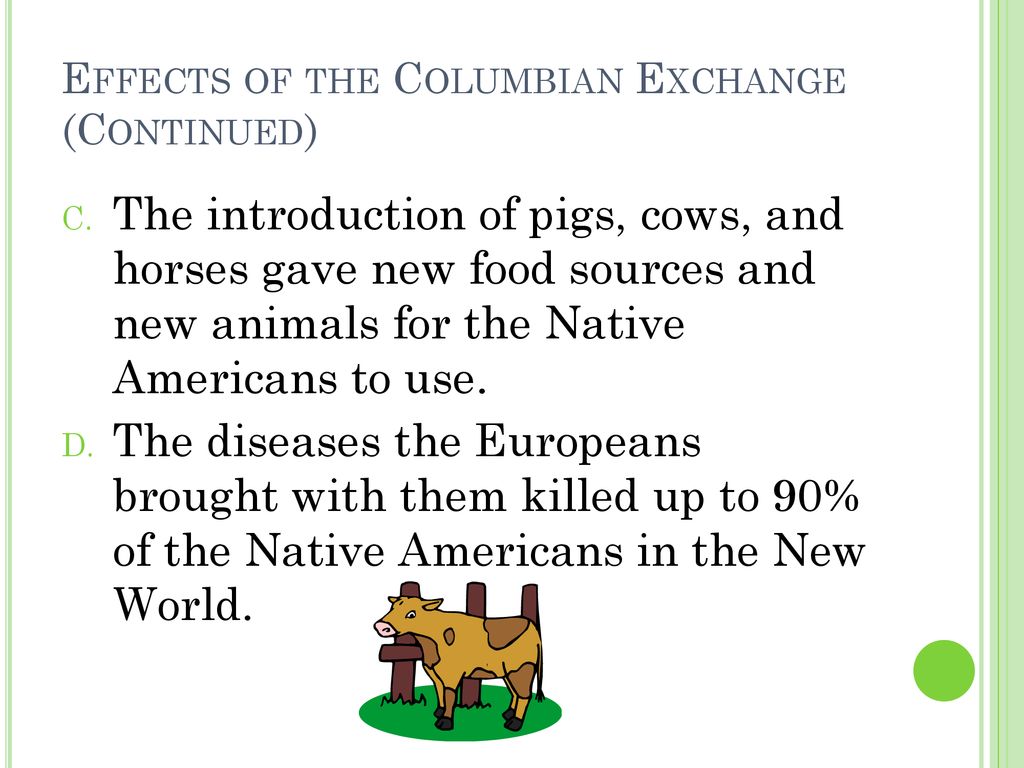May 19, 2022The Columbian Exchange is a term coined by Alfred Crosby Jr. in 1972 that is traditionally defined as the transfer of plants, animals, and diseases between the Old World of Europe and Africa and the New World of the Americas.
Plants | Free Full-Text | Distinguishing the Effects of Stress Intensity and Stress Duration in Plant Responses to Salinity
Learn about the Columbian Exchange, the movement of plants, animals, and disease between the Americas and the rest of the world, in these video segments from Chronoscope: Exploring 1492: “Columbian Exchange.” The positive and negative consequences of the Exchange became clear almost immediately. People on both sides reveled in new foods and animals that made their lives richer and easier

Source Image: slideplayer.com
Download Image
The historian Alfred Crosby first used the term “Columbian Exchange” in the 1970s to describe the massive interchange of people, animals, plants and diseases that took place between the
Source Image: theartoflearning-bermingham.blogspot.com
Download Image
Short term and immediate impacts of the Columbian Exchange by Jasmin Zavala on Prezi Next
The Columbian Exchange played a significant role in the primacy of mercantilism as economic policy. The exchange introduced new agricultural goods like potatoes, maize, and tomatoes to Europe

Source Image: study.com
Download Image
Short Term Effects Of The Columbian Exchange
The Columbian Exchange played a significant role in the primacy of mercantilism as economic policy. The exchange introduced new agricultural goods like potatoes, maize, and tomatoes to Europe
The Columbian exchange, also known as the Columbian interchange, was the widespread transfer of plants, animals, precious metals, commodities, culture, human populations, technology, diseases, and ideas between the New World (the Americas) in the Western Hemisphere, and the Old World ( Afro-Eurasia) in the Eastern Hemisphere, in the late 15th an
The Defeat of Inca Empire | Overview, Decline & Significance – Video & Lesson Transcript | Study.com
The spread of a disease to a large group of people within a population in a short period of time. An economic theory that was designed to maximize trade for a nation and especially maximize the amount of gold and silver a country had. The process by which commodities (horses, tomatoes, sugar, etc.), people, and diseases crossed the Atlantic.
PPT – The Columbian Exchange PowerPoint Presentation, free download – ID:1189239

Source Image: slideserve.com
Download Image
Latinos for Education Continues to Grow as the Need is Increasingly Urgent – Latinos for Education
The spread of a disease to a large group of people within a population in a short period of time. An economic theory that was designed to maximize trade for a nation and especially maximize the amount of gold and silver a country had. The process by which commodities (horses, tomatoes, sugar, etc.), people, and diseases crossed the Atlantic.

Source Image: latinosforeducation.org
Download Image
Plants | Free Full-Text | Distinguishing the Effects of Stress Intensity and Stress Duration in Plant Responses to Salinity
The historian Alfred Crosby first used the term “Columbian Exchange” in the 1970s to describe the massive interchange of people, animals, plants and diseases that took place between the

Source Image: mdpi.com
Download Image
Short term and immediate impacts of the Columbian Exchange by Jasmin Zavala on Prezi Next
May 19, 2022The Columbian Exchange is a term coined by Alfred Crosby Jr. in 1972 that is traditionally defined as the transfer of plants, animals, and diseases between the Old World of Europe and Africa and the New World of the Americas.

Source Image: prezi.com
Download Image
Clinical Theragnostic Signature of Extracellular Vesicles in Traumatic Brain Injury (TBI) | ACS Chemical Neuroscience
TThe effects of the Columbian Exchange were not isolated to the parts of the he effects of the Columbian Exchange were not isolated to the parts of the wworld most directly participating in the exchange: Europe and the Americas. It also orld most directly participating in the exchange: Europe and the Americas. It also

Source Image: pubs.acs.org
Download Image
SAQs for APUSH Topic 1.4 — The Columbian Exchange | by Peter Paccone | Medium
The Columbian Exchange played a significant role in the primacy of mercantilism as economic policy. The exchange introduced new agricultural goods like potatoes, maize, and tomatoes to Europe

Source Image: ppaccone.medium.com
Download Image
The Columbian Exchange – ppt download
The Columbian exchange, also known as the Columbian interchange, was the widespread transfer of plants, animals, precious metals, commodities, culture, human populations, technology, diseases, and ideas between the New World (the Americas) in the Western Hemisphere, and the Old World ( Afro-Eurasia) in the Eastern Hemisphere, in the late 15th an

Source Image: slideplayer.com
Download Image
Latinos for Education Continues to Grow as the Need is Increasingly Urgent – Latinos for Education
The Columbian Exchange – ppt download
Learn about the Columbian Exchange, the movement of plants, animals, and disease between the Americas and the rest of the world, in these video segments from Chronoscope: Exploring 1492: “Columbian Exchange.” The positive and negative consequences of the Exchange became clear almost immediately. People on both sides reveled in new foods and animals that made their lives richer and easier
Short term and immediate impacts of the Columbian Exchange by Jasmin Zavala on Prezi Next SAQs for APUSH Topic 1.4 — The Columbian Exchange | by Peter Paccone | Medium
TThe effects of the Columbian Exchange were not isolated to the parts of the he effects of the Columbian Exchange were not isolated to the parts of the wworld most directly participating in the exchange: Europe and the Americas. It also orld most directly participating in the exchange: Europe and the Americas. It also